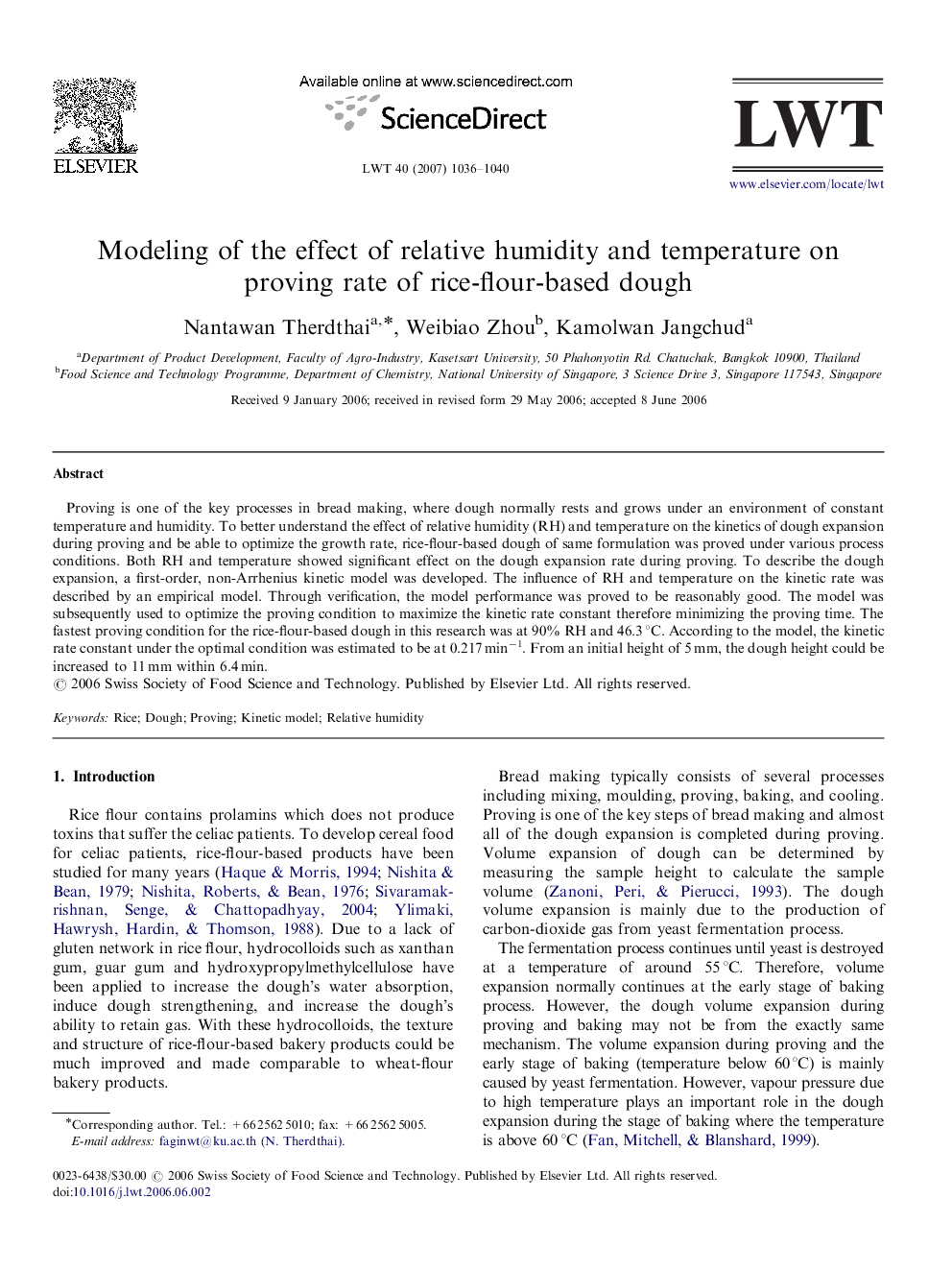| Article ID | Journal | Published Year | Pages | File Type |
|---|---|---|---|---|
| 4565239 | LWT - Food Science and Technology | 2007 | 5 Pages |
Proving is one of the key processes in bread making, where dough normally rests and grows under an environment of constant temperature and humidity. To better understand the effect of relative humidity (RH) and temperature on the kinetics of dough expansion during proving and be able to optimize the growth rate, rice-flour-based dough of same formulation was proved under various process conditions. Both RH and temperature showed significant effect on the dough expansion rate during proving. To describe the dough expansion, a first-order, non-Arrhenius kinetic model was developed. The influence of RH and temperature on the kinetic rate was described by an empirical model. Through verification, the model performance was proved to be reasonably good. The model was subsequently used to optimize the proving condition to maximize the kinetic rate constant therefore minimizing the proving time. The fastest proving condition for the rice-flour-based dough in this research was at 90% RH and 46.3 °C. According to the model, the kinetic rate constant under the optimal condition was estimated to be at 0.217 min−1. From an initial height of 5 mm, the dough height could be increased to 11 mm within 6.4 min.
